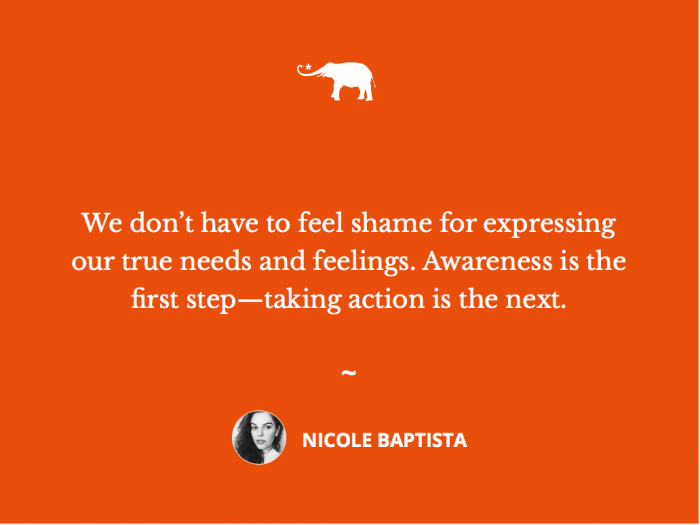“Perhaps it takes courage to raise children.” ~ John Steinbeck, East of Eden
“I hate that I’m unable to say no.”
“I hate that I’m unable to stick up for myself. How did I become this way?”
These are thoughts that cross the minds of the people pleasers frequently. People pleasers are experts at accommodating other people’s needs but often putting themselves last. As long as others are happy, people pleasers are happy—or are we?
These are some of the traits most people pleasers have in common:
>> A strong need for control.
>> Needing to be perfect.
>> Changing ourselves so that we blend into the group.
>> Feeling completely burned out from taking care of others.
So let’s get one thing straight:
We are not born as people pleasers. We don’t just pop out of the womb and then God says, “This one is going to be a people pleaser.”
All jokes aside, we learn what we see. The root of people-pleasing comes from the early stages of life; by this, I mean the way we were cared for, treated, and loved by our parents.
We all come into the world wanting love and nurturing.
For some of us, accommodating our parents’ wishes was the safest way to earn their love and respect. Some parents are highly critical of their children, withhold compliments and approval, hold high expectations of their children, or have angry outbursts when their children do something wrong.
Some people-pleasing children are confused by this as they grew up in loving and affectionate households. Therefore, this doesn’t apply to them. Yet, if our parents go from hot to cold when we do something right or wrong, this is really confusing for a child. One moment mum or dad is happy and affectionate, and the next moment, they are snappy and distant.
It could be something as simple as a child not wanting to eat (as they are a picky eater), and mum flips out and says, “Why do you have to be so difficult?” Or dad being disappointed when his child doesn’t get the best grades in maths at school.
So what does a child learn from this?
“I need to prove myself and be good to earn mummy and daddy’s affection,” which translates into fear—at the core of all people-pleasing is fear.
Fear of rejection. Fear of not being accepted. Fear of disappointment. Fear of being shamed. Fear of not being loved. Fear of losing personal identity.
People-pleasing children often walk on eggshells, constantly examining their parents’ moods and deciding whether it is safe or not to express themselves. People-pleasing starts off as a behavior and ends up being a lifestyle. It becomes compulsive; we can’t say no—and we all know living life constantly pleasing others is exhausting.
“Does this mean my parent is a bad parent?”
No. They were probably doing their best. Adults have their own wounds too. They have their own worries, problems, and maybe they were even raised in the same way. It was most probably never their intention to hurt their children in any way.
The key is to gently change how we relate to others. It isn’t easy to change because we were programmed to feel this way. The truth is, we don’t have to give ourselves up to be loved unconditionally. We can slowly start to build our self-esteem by saying no to small things we don’t want to do.
We don’t have to feel shame for expressing our true needs and feelings. Awareness is the first step—taking action is the next.
Start visualizing being more assertive in your head now. Practice saying no to something you actually don’t feel like doing but only do in order to make someone else happy.
Over time we can find out how to break the unhealthy thought patterns that keep us chained. We can literally rewire our brains so that we no longer feel the need to make everyone else happy and make ourselves feel worthy.
~










Read 23 comments and reply